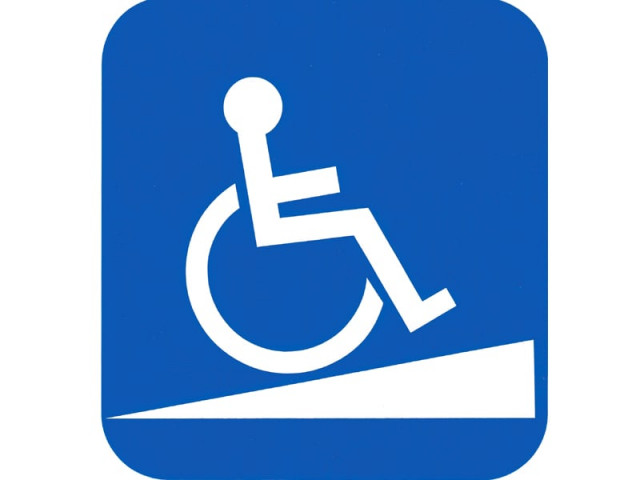Disabled does not mean ‘unable to’
If provided resources, handicapped people can make their own space.

It is very difficult to find reliable data about the prevalence of disability in Pakistan. The Pakistan Census Organization (PCO), in its 1998 national population census, estimated a figure of 2.49% of the overall population. The 1998 census covers seven types of disabilities, and recorded their incidence in 286,630 million persons out of a total population of 165,803,560 million. However, according to Association of Physically Handicapped Adults (APHA) statistics and World Health Organization estimates, children and adults with disabilities account for nearly 10% of the global population.
The distribution of different disabilities within the defined population of disabled persons, as indicated by the 1998 census, may provide a useful guide for planning programs. The breakdown of the statistics is as follows: physically handicapped 19%, mentally handicapped and insane 14%, multiple disability 8.21%, visually impaired 8.6%, hearing impaired 7.40% and others (not classified) 43.33%.
It is estimated that 66% of PWDs live in rural areas; only 28% of PWDs are literate; only 14% are employed; and 70% are reliant on family members for financial support. Further, a 1984-85 survey on disability revealed that over 49% of disabilities resulted from disease – more than birth (35%) and accidents (just under 14%) combined (source: Sight Saver Study). Data reveals that 55.7% of PWDs are located in Punjab, followed by 28.4% in Sindh, 11.1% in NWFP, 4.5% in Balochistan, and 0.3% in Islamabad (PCO, 1998).
The number of males with disability is greater than females in both rural and urban areas. This is possibly because of the high incidence of female infanticide caused by social discrimination, preference for the male child, and deep rooted gender insensitivity within households.
No scientific study or survey at the national level has ever been conducted to comprehensively assess the problems of this marginalised segment of society. Existing policies and laws need to be refined and weak enforcement mechanisms strengthened so that PWDs can get benefits. The only law for the welfare of PWDs was passed in 1981, which does not contain an effective mechanism for the employment and rehabilitation of PWDs due to a number of lacunae in the ordinance.
There is need of inclusive policy-making which cover all issues relating to disability. A disability can be converted into ability if the government provides technologies and access to resources on the basis of human rights. This deprived segment of Pakistan’s population must be recognised and enabled to earn its place in society.
THE WRITER IS A CONSULTANT AT THE SUSTAINABLE DEVELOPMENT POLICY INSTITUTE ISLAMABAD
Published in The Express Tribune, November 19th, 2012.



















COMMENTS
Comments are moderated and generally will be posted if they are on-topic and not abusive.
For more information, please see our Comments FAQ